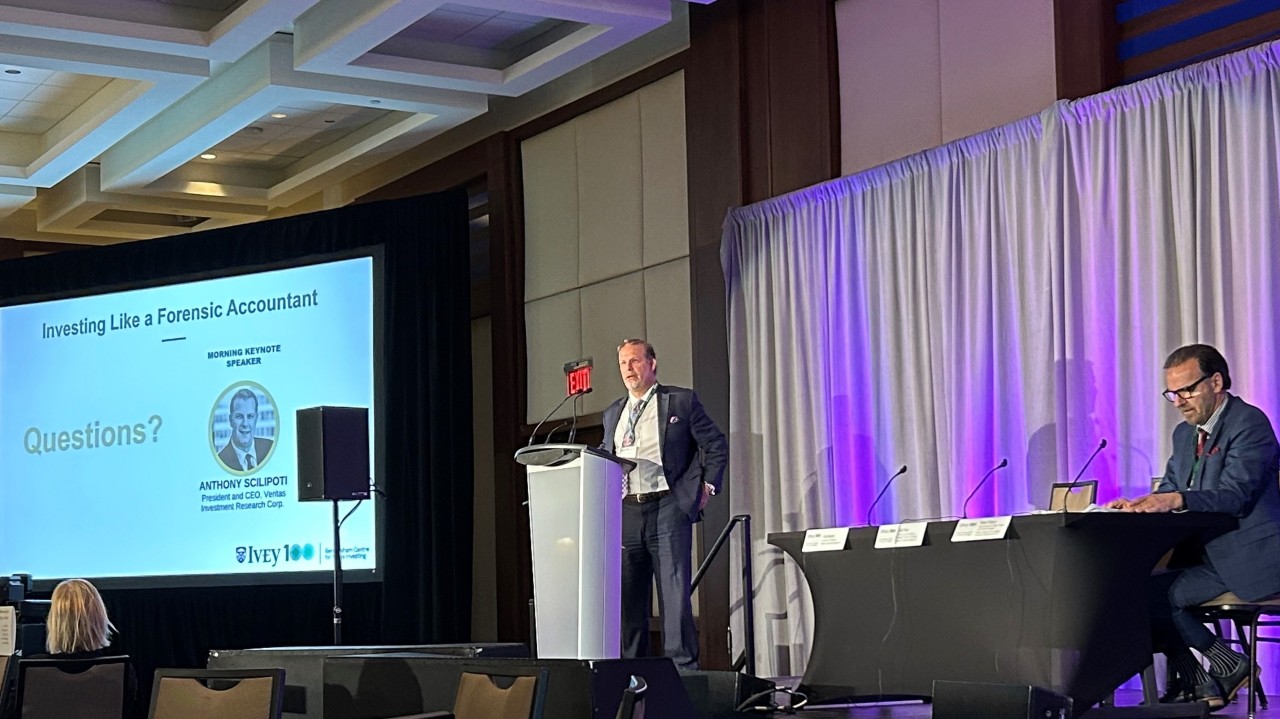
Key Takeaways from the Value Investing Summit
It was a big thrill to present at Ben Graham Centre for Value Investing's 2023 Value Investing Conference last week. First, I want to thank George Athanassakos, Professor of Finance and Ben Graham Chair in Value Investing at the Ivey Business School at Western University, for the invitation.
Amongst many great speakers, it's no surprise that Howard Marks had the room hanging on his every word. I'm a big fan and highly recommend investors read his commentaries and his book - The Most Important Thing. Here are a few notes from his talk that I thought other investors might want to think on:
- Macro assumptions: These are the hardest to figure out as an investor. You're often wrong, and when you are right, it's often for the wrong reasons. Focus on what you know and what is knowable, and what we do know is that high-quality companies with defensible business models that generate cash are going to appreciate over time.
- We are in a Sea Change moment: Howard defines a Sea Change moment as a period of fundamental change in the business environment and attitude towards it. It's not just cyclical. For the first time in 40 years, interest rates are no longer moving in a straight line downward. Rates are up and will likely remain higher longer than people currently expect. The last 40 years have been phenomenal for asset owners of all kinds. Stocks have done well, real estate, private equity etc., all because of the decline in the cost of capital. In fact, borrowing was a good thing. All people made money, and the more debt you had, the better you did. You were able to refinance that debt at lower rates as your asset values increased.
- Sentiment: He described the last 40 years as like being on a moving walkway. If you walk in a direction, you travel at a certain speed. If you walk at that same speed on a walkway, it accelerates your pace. The trend in interest rates had the same effect on wealth for asset owners and on their feelings about the economy and life. What we haven't seen yet is a sea change in sentiment when buyers won't be eager to buy and sellers won't be eager to sell. We don't know where rates are going, but the assumption is they are more likely going to be between 2% and 4% instead of zero and 2%. And that means that it will not be quite as easy as it was in the past to make investment decisions. What that means is we're heading to a period that is likely phenomenal for value investors and for those investors who are focused on fundamentals.
- Artificial Intelligence and Passive or Factor-based Investing: There will be a role for these to play in our industry, but computers still have a hard time making a decision if they're looking at five business plans and need to decide which one will be the next Amazon. The risk is to the passive. Passive has all the money. And it's more likely that if performance becomes more challenged, it should create a better environment for fundamental value investors to perform.
In summary, know the environment you're in. The environment that we've been in has been one of globalization, declining interest rates and benign inflation. It's much different today. We are moving to deglobalization, higher interest rates, and higher inflation. Market optimists have been winning the war because it's been fueled by lower interest rates, but we think that's not sustainable. Adjustment is required and it's coming quickly.
Investing Like a Forensic Accountant
Howard's comments tie nicely with one of the main points of my presentation, Investing Like a Forensic Accountant, and that is that the sea change will put increasing pressure on companies to meet Street expectations, which means that investors need to be on high alert for accounting shenanigans.
As also noted in this Globe article about the conference (Value investing may finally be emerging from its decade-long slump), at Veritas we think the sudden move higher in interest rates is poised to unsettle many sectors that have prospered from the steady fall in rates over the past four decades. Be wary of highly indebted companies, alternative-asset managers, and banks, as they are more likely to feel the pinch of higher borrowing costs.
Hat tip to the article author Ian McGugan, we couldn't have said it better: "The most valuable investing decisions of the next couple of years could have more to do with what you choose to avoid than what you choose to buy."
Thanks for sharing Anthony